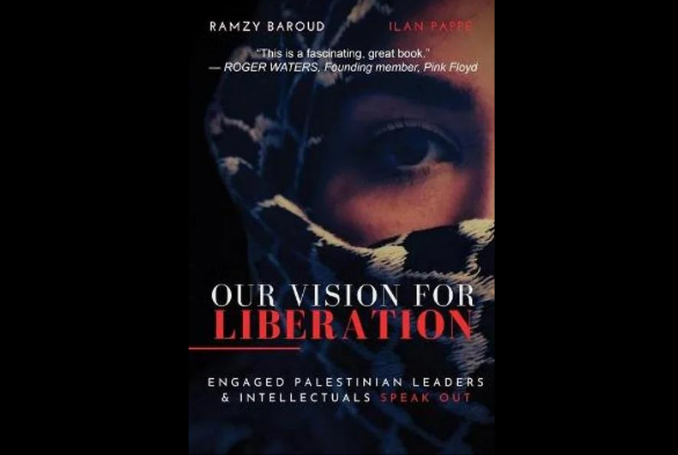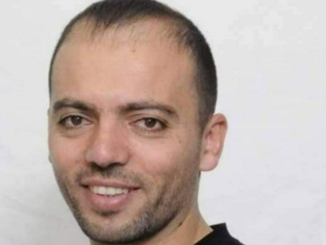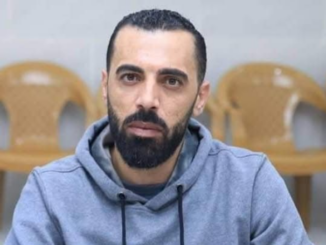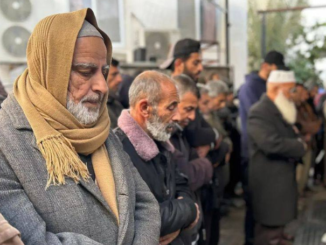
(Our Vision for Liberation: Engaged Palestinian Leaders & Intellectuals Speak Out, Ramzy Baroud and Ilan Pappé, Clarity Press, 2022)
This powerful book is a series of themed essays and interviews with knowledgeable thinkers and doers.
While only a few are (or have been) elected officials, all are engaged in the newest era of evolution of liberation for all of Palestine, whether in West Bank / Gaza, Israel, or the Diaspora. These voices speak of despair and betrayal when considering their Arab neighbor nations, the actions of their nominal government (Palestine Authority), their representation in the Israeli Knesset, or protection by the United Nations or the international community.
They have learned that the only thing they can count on is themselves, that is the steadfastness (sumud) of the people, not those who purport to be their leadership. The preface begins with a quotation: “Liberators do not exist. It is the peoples who liberate themselves”.
So, with that beginning, Ramzy Baroud and Ilan Pappé proceed to illuminate the new era, the Unity Intifada, that was triggered by a concatenation of Israeli actions in the Spring of 2021. In early May 2021, the Israeli Supreme Court was seen as ready to approve the eviction of Palestinian families from the Sheikh Jarrah neighborhood of Jerusalem. That same week, Israeli police stormed the al-Aqsa Mosque. Confrontations between Israelis (militant civilians and police) vs. Palestinians led to more than 600 injured persons, mostly Palestinians. Thus far, not much of this was unprecedented.
But on 10 May, a new event took place: Hamas in Gaza gave the Israeli government until 6 pm on that day to remove its forces from the al-Aqsa area and from Sheikh Jarrah or face a strong response. That response took the form of rocket fire from Gaza into Israel. This produced little actual damage but had significant political significance: the fragmentation of the Palestinian people was over. Those in Gaza, West Bank, Israel, or in refugee camps elsewhere are behaving as one people, and will live, fight, die or triumph together.
Thus was born the Unity Intifada, which provides the temporal framework for many of the contributions to this powerful book.
One of the writers cites poet Mahmoud Darwish: “Palestinians are cursed with an incurable disease called hope”. One theme that I extract from the book is the turning away from the hope that justice will come from external sources to the realization that external donors and “supporters” are corrupting and enervating, and that self-generated actions are what is needed.
We find writers who speak of the decolonization of the mind that is needed to recover from the loss of cultural heritage that comes from living under the UK for decades and under Israeli influence/control since the 1940s.
We see an optimism springing from seeing that the intentional fragmentation of the people of Palestine has failed. Even after a century of displacement and dispossession, there are powerful currents drawing them back together again.
I encourage those who want to understand these new realities to read this captivating book.
– Gary Anderson is a retired Civil Engineer who lived in Palestine in 2005-7 and in 2013, working on water and wastewater issues there. His time as a resident has given him a sense of the commitment to family, home and place that is an essential part of the people of the land.







